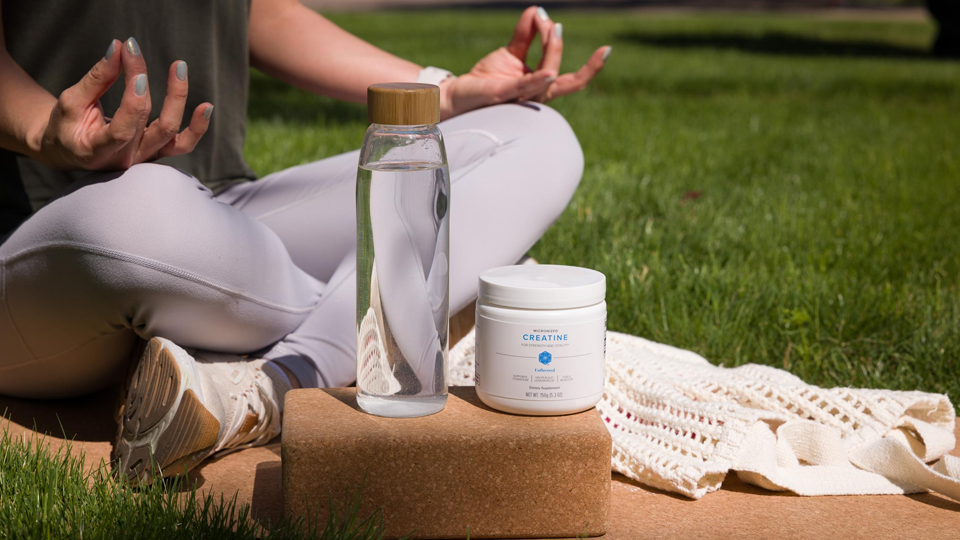Isagenix, a leading global health and wellness company committed to continued investment in scientific research, is pleased to announce the publication of a new study that provides additional validation of its nutritional products for improving physical performance.
The study, published June 1, 2016, in the peer-reviewed journal Nutrients, was the first to demonstrate that physically active women who used Isagenix products for increased protein (2 grams per kilogram) while engaging in an exercise program enhanced their muscular endurance, strength, power, and cardiovascular health.
“In previous studies, we learned that Isagenix products served as a foundational nutritional system for weight management, but we were interested in seeing the effects of a high-protein intake using the products on exercise and performance,” says Eric Gumpricht, Ph.D., Isagenix Manager of Research and Science.
The newly published paper is the first of two arms of a trial—this arm involving women—evaluating Isagenix products for performance by researchers at Skidmore College, Saratoga Springs, New York. The final results of the second arm—the arm involving men—is forthcoming.
Study Details
In the study, researchers randomized 30 women to either of two groups:
- The Isagenix-PRISE group, (PRISE stands for “protein pacing, resistance, interval, stretching, endurance training”) who consumed Isagenix products, followed a plan that consisted of five to six meals per day while consuming 2 grams of protein per kilogram of body weight with 20-25 grams per meal. This plan incorporated Isagenix whey-based products IsaPro®, IsaLean® PRO Shake, and IsaLean Bar. On exercise days, the subjects also used e+™, a naturally caffeinated energy shot, and Replenish™, an electrolyte-replenishment beverage, and Ionix Supreme, an Adaptogen-rich drink. The subjects also supplemented with Ageless Essentials™ Daily Pack, a multivitamin/mineral/bioactive pack.
- The control group (CON) followed a meal plan that included a dietary protein intake consisting of five to six meals per day at 1 gram of protein per kilogram of bodyweight. Their plan used general supermarket products including granola bars and organic milk. On exercise days, the subjects also consumed caffeine from coffee or tea, a general electrolyte beverage, and a multivitamin/mineral supplement.
Both groups engaged in a RISE exercise training protocol previously developed by the study’s principal investigator Paul Arciero, Ph.D., Director of the Human Nutrition and Metabolism Lab and a professor in the Department of Health and Exercise Sciences at Skidmore College. The RISE protocol (resistance, interval, stretching, endurance training) is designed to improve multiple aspects of performance—core and upper body maximal strength and power, aerobic power, balance, and flexibility.
After 12 weeks, subjects in both groups showed improvements across several parameters of their health and fitness. However, the researchers noted major differences in the Isagenix-PRISE group in comparison to the control group that included:
- Significantly greater reduction in arterial stiffness, a measure of cardiovascular health, in the Isagenix-PRISE group
- Nearly twice as much improvement in upper body muscular endurance (pushups) for the Isagenix-PRISE group
- Nearly twice as many situps—a measure of muscular endurance in the core region—for the Isagenix-PRISE group
- Nearly five times greater upper body explosive power for the Isagenix-PRISE group—as measured by bench throws
The researchers’ conclusions provide compelling evidence that using Isagenix whey-based products, as part of a “protein-pacing” protocol, to increase dietary protein intake to more than twice the Recommended Daily Allowance could further increase training adaptations with additional cardiovascular benefits.
Quality of Nourishment
“The findings were notable because all the women were fit, and both groups improved, so the chances of finding any major differences are low, but we did,” says Dr. Arciero. “Our results are partly attributed to the quality of nourishment through increased dietary protein with the women in the Isagenix-PRISE group.”
In addition, Dr. Arciero says the findings demonstrate that it’s not necessary to engage in strenuous exercise several times a week as that can leave some individuals feeling exhausted. As with previous studies using his PRISE protocol, it proves once again that less is more when it comes to exercise and nourishment for optimal health and performance.
Dr. Arciero also notes that another important finding was that the PRISE group taking the Isagenix products reported feeling more satiated, and as a result, may be less likely to overeat as compared to the control group.
“The study’s results demonstrate that receiving quality nutrition from Isagenix products can make a major difference for getting maximum return on investment from working out,” says Dr. Gumpricht.
Read the open-access paper.
Reference
Arciero PJ, Ives SJ, Norton C, Escudero D, Minicucci O, O’Brien G, Paul M, Ormsbee MJ, Miller V, Sheridan C, He F. Protein-Pacing and Multi-Component Exercise Training Improved Physical Performance Outcomes in Exercise-Trained Women: PRISE 3 Study. Nutrients 2016, 8(6), 332; doi:10.3390/nu8060332





